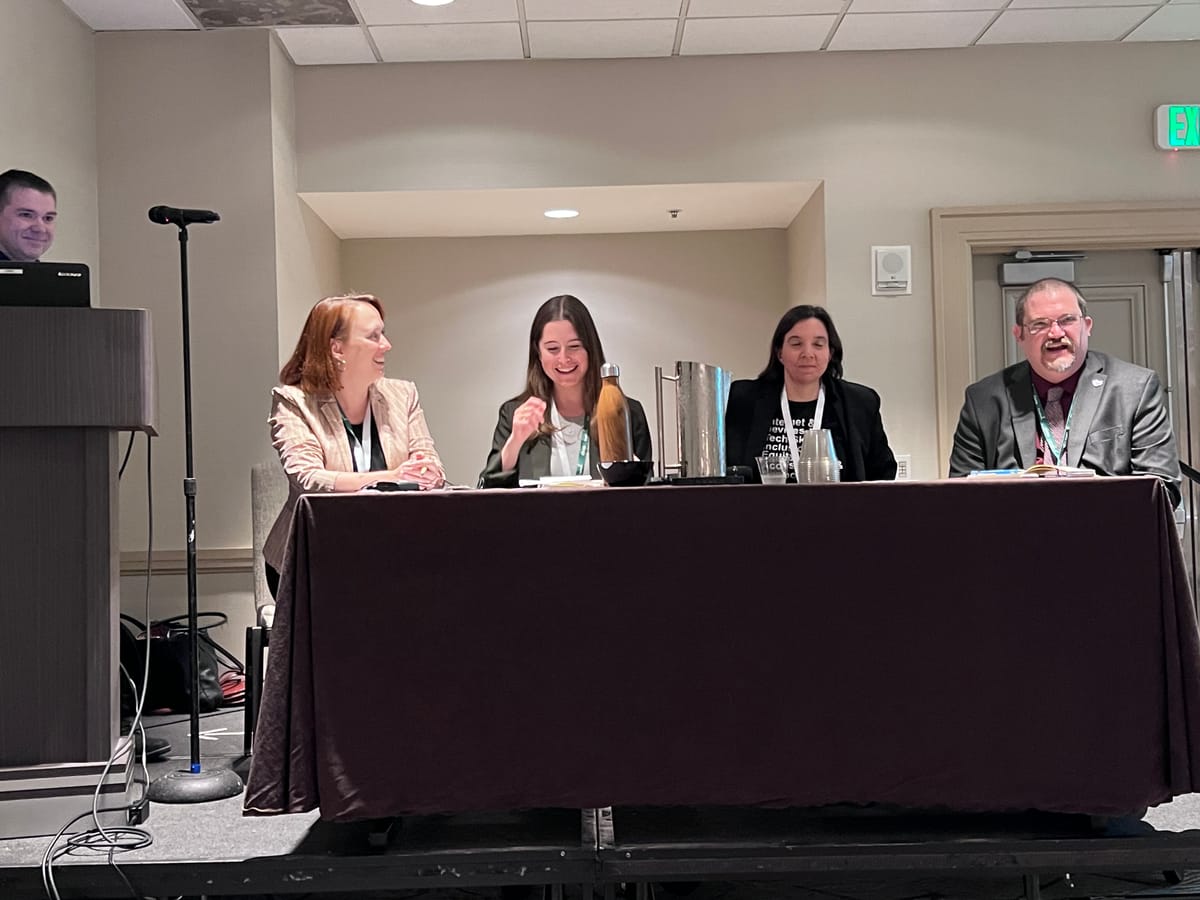Advice from Midwest State Broadband Heads on BEAD
Directors talk provider default prevention and fixed wireless technology.
Joel Leighton, Drew Clark

DENVER, August 8, 2024 – State broadband directors from the the midwest shared updates on their Broadband Equity, Access, and Deployment program rollouts, and discussed efforts to prevent provider defaults at a Tuesday Mountain Connect panel.
Quick updates:
- Ohio state is still working through its Volume 2 proposal because of a disagreement over its “one dollar provision.” The provision would allow entities to bid a dollar for locations in the first round.
- Wisconsin's Volume 2 proposal was approved on August 6, the same day of the panel. The state’s letter of intent will remain open until October 1, giving internet service providers time to assess their eligibility for the program.
- Illinois’ challenge process wrapped up in June, and submitted its final results to the NTIA two and a half weeks ago. They are now evaluating pre-qualification submissions from those interested in applying for the formal application process.
- Michigan has not been approved for Volume 2 yet, but submitted its latest round of curing that same day. Michigan is also open for preregistration, the documents of which will likely be used for project applications.
Lessons learnt by directors:
During the panel, the directors discussed strategies to avoid the same level of defaulting from providers that occurred under the Rural Digital Opportunity Fund program.
Jessica Randall, the infrastructure and data director at the Michigan Broadband Office, said that the financial stability of participants is crucial for the long-term success of the BEAD program.
Randall said that their office’s emphasis on preregistration is designed to ensure providers have the capability to complete the project successfully and avoid defaulting at a later date.
“It’s really important to us that we’re using this pre registration period to look very seriously at making sure that those who are going to apply for and ultimately receive funding have the capacity to help us keep Michiganders connected,” Randall said.
Devon Braunstein, director of Illinois Office of Broadband, said the state has have already worked with 40 providers in the pre-qualification process to avoid a repeat of mass provider defaults.
“If [communities] don’t see that provider making progress, and they don’t see themselves represented in BEAD, they’re just lost and so it is extremely important for us to do that proper vetting,” Braunstein said.
Peter Voderberg, Chief of BroadbandOhio, stated that his team plans to conduct a financial risk analysis for providers at the outset of the process.
“We will then bucket you into high risk, medium risk and low risk,” Voderberg said to prospective providers. Voderberg said that providers which pose a higher risk could be subject to additional credit.
Alyssa Kenney, Broadband and Digital Equity Director of Wisconsin, took time to address the importance of fixed wireless in serving the state's 225,000 locations.
“We know that we need fixed wireless to get it done in the state of Wisconsin. There really are some geographies in our state where it will be very critical,” Kenney said.
Kenney acknowledged that there is a perception in the industry that fixed wireless technology is considered a "leftovers" option and has a history of underperformance. However, Kenney noted that the technology can be reliable if it is properly funded.
“I think this is a really great opportunity to fund some of those networks or fund new networks that are really going to perform at the full opportunity that fixed wireless can provide,” Kenney said. “You can really get to everybody if you do the network right.”










Member discussion